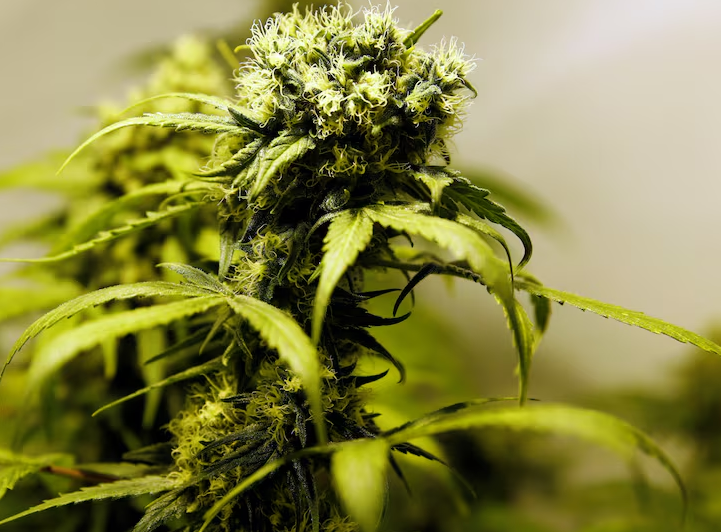A federal appeals court handed a major victory to medical cannabis patients in Florida, ruling that the government cannot strip away their right to own firearms simply because they follow a doctor’s prescription.
A Landmark Decision in the Gun-Cannabis Debate
On Wednesday, the 11th U.S. Circuit Court of Appeals sided with a group of Floridians who argued that federal restrictions barring cannabis patients from gun ownership violated the Second Amendment.
At the heart of the case is a long-running tension: federal law still classifies cannabis as a Schedule I drug — the same legal category as heroin — while dozens of states have legalized it for medical or recreational use. The clash between state reforms and federal prohibition has left millions of Americans caught in the middle.
For patients in Florida, this ruling is more than just a courtroom win. It signals a potential shift in how courts balance gun rights with cannabis laws.

How a Supreme Court Case Changed the Game
This lawsuit leaned heavily on a 2022 Supreme Court decision that reshaped gun rights jurisprudence. That ruling declared that any firearm restriction must be “consistent with this nation’s historical tradition of firearm regulation.”
The plaintiffs argued that banning medical cannabis patients from owning guns fails that historical test. And the appellate court agreed.
In simple terms: the government can’t broadly label all cannabis patients as dangerous without evidence rooted in historical precedent.
One of the attorneys, William Hall of Jones Walker, summed it up bluntly: “The 2nd Amendment does not permit the federal government to categorically deem all medical marijuana patients to be too dangerous to exercise their core constitutional rights.”
A Political Flashpoint in Florida
The case traces back to 2022, when it was originally filed with the backing of then-Florida Agriculture Commissioner Nikki Fried, a Democrat who has been outspoken on cannabis reform.
Fried framed the lawsuit not just as a fight for patients but as a fight against federal overreach. She argued that the government was undermining congressional intent, given that lawmakers had passed budget measures barring federal interference with state medical marijuana programs.
For Florida, a state with one of the largest medical cannabis patient populations in the country, the stakes were particularly high.
It’s worth remembering: more than 870,000 Floridians are registered medical marijuana patients as of mid-2025, according to state health department data. That’s a large slice of the electorate now directly impacted by this ruling.
What This Means for Patients
So what happens next? For now, medical cannabis patients in Florida can breathe a little easier knowing that their gun rights are intact. But federal law hasn’t changed — and that means uncertainty lingers.
Some key takeaways:
-
The decision only applies within the jurisdiction of the 11th Circuit, which covers Florida, Georgia, and Alabama.
-
Unless Congress reclassifies cannabis or the Supreme Court weighs in, the conflict between state laws and federal prohibition will continue.
-
Gun sellers still face tricky compliance questions, since federal forms explicitly ask whether buyers use cannabis.
This tug-of-war could leave patients with rights on paper but practical challenges in reality.
Past Precedent and Wider Implications
This isn’t the first time courts have leaned in favour of cannabis patients on gun rights. In fact, Wednesday’s ruling marks the second major win for this group.
Legal scholars note that the growing number of state cannabis programs is creating cracks in federal enforcement. The pressure is mounting on Washington to reconcile outdated drug laws with modern realities.
To put the stakes in perspective, here’s a look at the overlap between gun ownership and cannabis use in the U.S.:
| Category | Estimated U.S. Adults (2023) | Notes |
|---|---|---|
| Gun owners | ~81 million | Pew Research Center |
| Cannabis users (past year) | ~48 million | SAMHSA survey |
| Registered medical cannabis patients | ~6 million | ProCon.org |
| States with medical cannabis programs | 38 + D.C. | As of 2025 |
That’s a sizable portion of Americans facing the same contradictions that sparked this Florida case.
Uncertain Future for Federal Cannabis Policy
The ruling does not rewrite federal law. Cannabis remains illegal under the Controlled Substances Act. Yet the decision adds momentum to a wave of legal and political challenges chipping away at prohibition.
Congress has considered bills to reschedule or decriminalize cannabis, but progress has been slow. Meanwhile, courts are increasingly forced to resolve conflicts created by the patchwork of state laws.
Whether this latest ruling accelerates reform or triggers further appeals is still up in the air. But one thing is clear: patients who use cannabis legally under state law are no longer willing to accept being treated as second-class citizens.
And the courts, at least in Florida, are beginning to agree.
Maria Garcia is an award-winning author who excels in creating engaging cannabis-centric articles that captivate audiences. Her versatile writing style allows her to cover a wide range of topics within the cannabis space, from advocacy and social justice to product reviews and lifestyle features. Maria’s dedication to promoting education and awareness about cannabis shines through in her thoughtfully curated content that resonates with both seasoned enthusiasts and newcomers alike.








